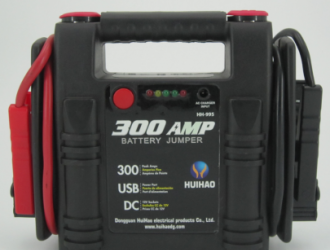As Africa's second largest economy and the largest populous country, Nigeria's automobile and auto parts product market is also in huge demand and mainly depends on imports.
1. Nigeria's automobile demand is large
Nigeria is rich in resources and is the second largest economy in Africa. It has a population of 180 million, is the most populous country in Africa, and has 5 million cars.
Nigeria’s automobile market has great potential. Because Nigeria’s railways are backward and public transportation is underdeveloped, automobiles have become a necessary private tool. However, due to economic development and national income levels, coupled with a large gap between the rich and the poor, it is currently and for a long time in the future. Internally, its market will still be dominated by low-priced and used cars.
The demand for new cars in Nigeria is about 75,000 units/year, while the demand for used cars exceeds 150,000 units/year, accounting for two-thirds of the total demand. about two-thirds of existing vehicles are used cars. And most of the demand needs to rely on imports, low-cost cars have a higher brand penetration and recognition in Nigeria. Nigeria’s few auto repair outlets and expensive spare parts also make the export of cost-effective auto parts products great potential for the Nigerian market.
2. The Nigerian auto market mainly relies on imports
Most of the demand in the Nigerian car market comes from imports, including new and used cars.
Nigeria’s trade has developed rapidly in recent years, and its economic strength, market capacity and development potential, as well as its regional radiation capabilities in West Africa, Central Africa and North Africa are very strong. As Nigeria's transportation is mainly road, automobiles have become an important means of transportation, but Nigeria lacks its own national automobile industry. To meet the needs of the domestic automobile market, Nigeria imports a large number of automobiles.
It is no exaggeration to say that Nigerians are proud of being able to drive a car.
In Nigeria, the service life of cars has been greatly shortened due to poor road conditions, fewer car repair outlets and expensive parts.
Since there are no scrapped cars, almost all of them rely on replacing auto parts to maintain their lives after their service life is exceeded. In Nigeria's auto parts market, it is not difficult to find that auto parts products with high cost performance are highly sought after due to their high quality and low price. therefore. Cars and accessories in Africa are very promising. As long as the location is selected, reasonable prices and high-quality services are added, the market potential is huge.
3. Nigeria has lower tariffs
In addition to the huge market potential, the government has also given great support to the automotive industry. According to the latest tariffs announced by the Nigerian Customs, four levels of import tariffs of 5%, 10%, 20% and 35% are imposed on automotive products. Among them, passenger cars (10 seats or more), trucks and other commercial vehicles have a lower tax rate, generally 5% or 10%. only 20% tariffs are imposed on imported four-wheel drive vehicles; for passenger vehicles (including cars) , Travel passenger cars and racing cars), the tax rate is generally 20% or 35%; special purpose vehicles, such as self-unloading heavy trucks, cranes, fire trucks, etc., are levied at a 5% tariff; motor vehicles or non-motor vehicles for the disabled All are zero tariffs. In order to protect the local automobile assembly plants in Nigeria, Nigeria Customs only imposes a 5% tariff on all imported cars.
Directory of China Automobile Manufacturers Association








